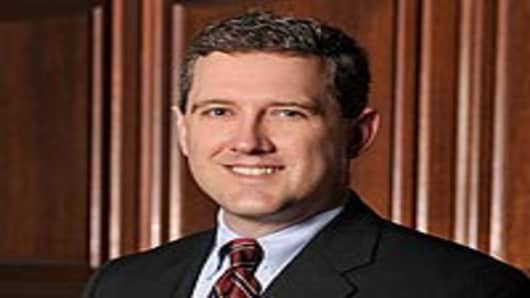Europe's persistent debt crisis is likely to "tumble along" for an extended period of time but not have much effect on the U.S., St. Louis Federal Reserve President James Bullard told CNBC.
Rather than explode and cause global contagion, the problems countries such as Greece and Italy have repaying their sovereign debt probably will be contained, said Bullard, who believes the Fed has sufficient policies in place to safeguard the American economy.
"Obviously Europe is a risk. We don't know what's going to happen," he said. "If it blows up in a big, disorderly way, which is what everybody is worried about, then that could come back to haunt us. If it just kind of tumbles along for a long period — which is the most likely outcome — then I'm not sure you'd get much feedback to the U.S."
American consumers don't seem to be bothered by the debt situation in any event, Bullard added.
"Europe is too far away for the American household to get them to cancel the Disney World trips," he said. "They will not pull back from their ordinary activities just because they're getting a lot of headlines about something going on in Italy or France."
Bullard has expressed some misgivings with steps the central bank has taken over the past several years to address first the financial crisis that blew up in 2008 and later the threat of the U.S. economy slipping into another recession .
The Fed has expanded its balance sheet to nearly $3 trillion, much of which has come in the form of quantitative easing policies where the Fed has purchased Treasurys and other debt to stimulate the economy.
In September, the Fed announced what the market common calls Operation Twist— selling shorter-dated debt and buying longer-dated in an effort to drive down long-term interest rates.
Along the way the Fed has stated it will keep its target interest rate near zero until at least mid-2013.
"You should never make policy based on the calendar. You should make policy on the state of the economy," Bullard said.
Yet he believes the Fed's extraordinary measures to prop up the economy have been mostly necessary.
"We've promised to stay at zero through at least — remember the words 'at least' — mid-2013," he said. "We've done many, many things that are outside the normal realm of monetary policy. We've been very innovative."




